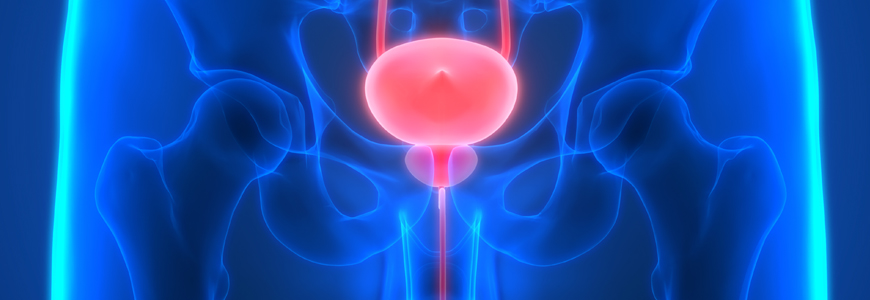Duke urologist Todd Purves, MD, is a leading national researcher in the field of inflammasome biology in the lower urinary tract and the principal investigator of the Duke University Urinary Dysfunction Laboratory, which focuses on the role of the innate immune system in benign urologic pathology.
Here, Purves discusses Duke’s current research into the mechanisms by which diabetes can lead to urinary dysfunction and the reasons for why studying this condition is important.
Why did you decide to study diabetic bladder dysfunction (DBD)?
Purves: DBD is an under-recognized problem that’s a very big deal. Approximately 80% of people with diabetes have an overactive bladder or have difficulty sensing when they need to urinate. Over time, the bladder can stop working altogether. In the absence of substantial studies about this specific patient population and no specific targeted therapies, physicians treat patients with diabetes the same way they treat everyone else. But data from several studies show that the standard treatments don’t work well for patients with diabetes.
Medications that improve blood flow and that are approved for treating overactive bladders, such as mirabegron and sildenafil, can sometimes bring relief to patients with DBD. However, part of the problem with DBD is that tissues in the bladder don’t receive enough oxygen, so we need to find treatments that target the additional issues that diabetes cause.
Another reason we’re focusing on diabetes is that it affects patients in so many different ways. For example, ophthalmologists must contend with diabetic retinopathy leading to blindness, our nephrology colleagues are trying to prevent renal failure when diabetes attacks the kidneys, and cardiologists are all too familiar with the negative consequences of diabetes on heart health. As our urologists look at the immune system as it relates to bladder dysfunction, our preliminary findings suggest that the same mechanism could also be involved in these other complications. So our research could have far-reaching effects within urology as well as other specialties.
What is the focus of your current research, and what do you hope to accomplish?
Purves: We’re currently focusing on the NLRP3 (nod-like receptor, leucine-rich repeat protein 3) inflammasome, which senses diabetic metabolites and initiates an inflammatory response and has been implicated in multiple diabetic complications.
In our study recently published in Diabetes, we investigated the activation of NLRP3 in cultured urothelial cells and in the bladders of diabetic mice and demonstrated its deleterious effects on bladder function and innervation. Our team at Duke was also recently awarded a five-year grant from the National Institutes of Health for studies on inflammasome-mediated inflammation in DBD.
Ultimately, we want to understand why DBD happens and then develop the first specific pharmacologic therapy that will hopefully bring relief to patients with the condition.
Is DBD a problem for only adults?
Purves: We’re also very concerned about diabetic complications in children. There have been many recent reports about an explosion of diabetes cases in pediatrics, with children as young as 5 years old being diagnosed with the disease. One of our nurse practitioners, Maryellen Kelly, DNP, recently conducted a pilot project for children who had type 1 or type 2 diabetes and found that 33% of the children had bladder problems. We’ve been worried about blindness and other complications from diabetes, but now we’re finding that many children will likely have lifelong problems with their bladders if they’re not treated appropriately. Dr. Kelly has recruited 11 other sites to conduct a multi-institutional study with a larger patient population, and the results will become the first definitive study for pediatrics.
What recommendations do you have for clinicians who have patients with diabetes?
Purves: I encourage clinicians to assess their patients’ urinary function as a standard part of physical examinations and refer them to a urologist who specializes in bladder dysfunction. Duke urologists have a specific interest in DBD and understand its causes and treatments better than specialists at most centers.
